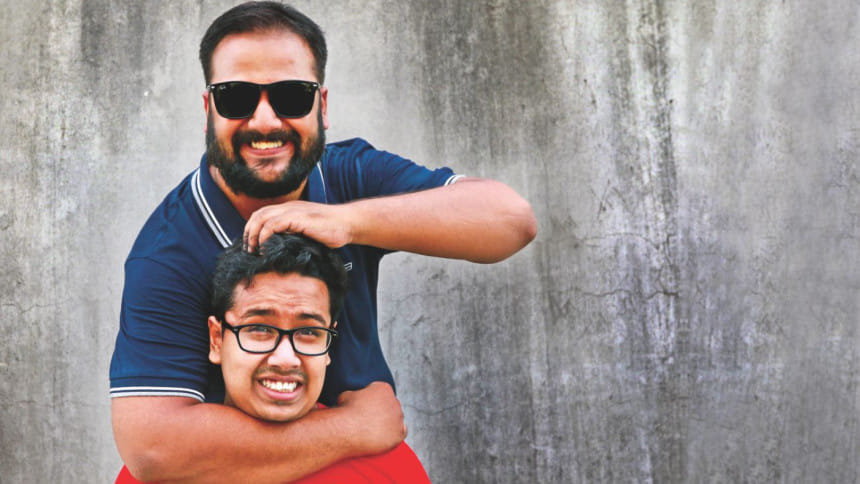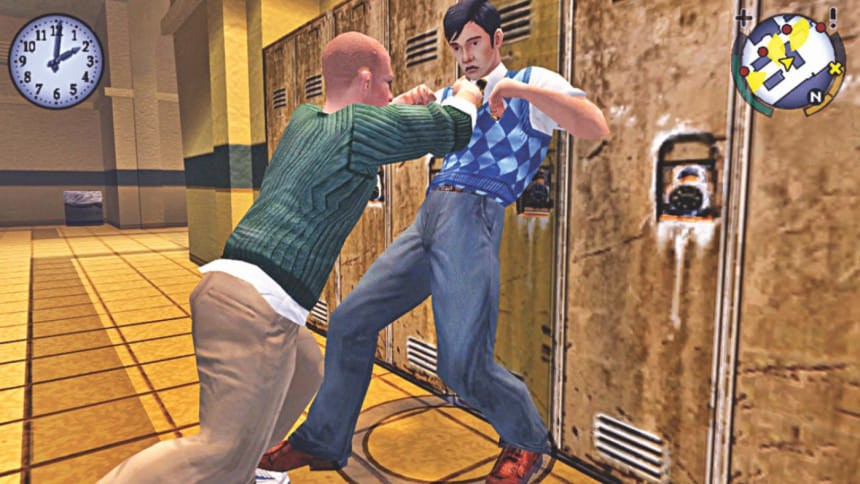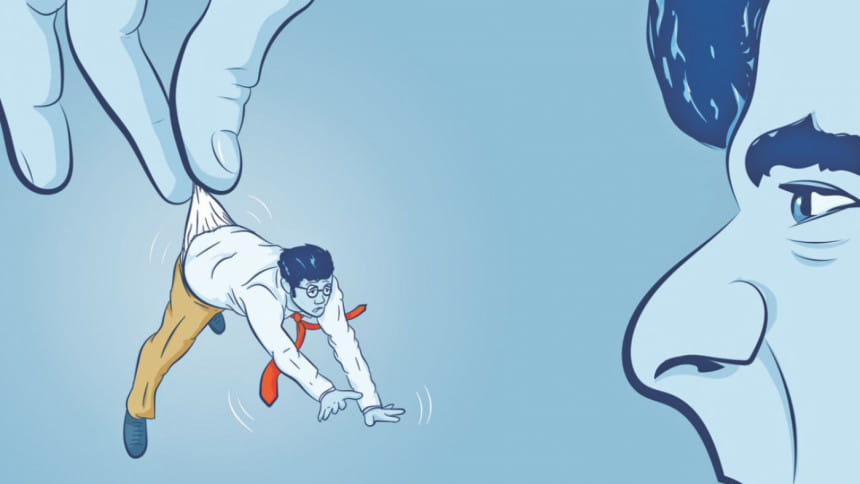Inside a Bully's Mind

One day during school hours at an English medium school in Dhaka, 9th grader Rahul Chowdhury wished to play table tennis while some other students were already playing. He asked one of the juniors, a 7th grader, to give him the bat in the middle of the game. Rahul grabbed his collar as the boy refused and amid much swearing, started threatening him. Terrified, the boy started crying and ran away.
"Thinking about it now, I probably did it because I was very insecure and paranoid at most times," says Rahul, 25 now. "I felt like a superior being or an alpha at the time, but it bothered me and I always felt guilty afterwards. I'm really sorry for all of it now."
Bullying is an inevitable element of school life, and the fact that it's wrong, as well as its adverse implications on those at the receiving end, has been discussed far and wide. The part that's often less focused on is the "why" behind the act – the bully's side of the story. This isn't to say that bullies have justifiable explanations for their behaviour.

For Rahul, the urge to bully those around him – mostly people who appeared to be weaker than him physically – stemmed from a need to invoke fear. "I just wanted them to be scared of me. I believed at the time that fear equals respect," he explains.
It's a twisted legacy passed down through generations of high-schoolers and younger children. Each fresh batch of kids witness seniors pulling off the "cool" image by bullying others; some of them remain victims and others believe that the way around it is by becoming bullies themselves.
The idea is further fuelled by the myriad of pop culture content in which bullies, even if they're taught a lesson at the end of the day, are enshrouded in an aura of glamour and popularity. While generations of the past decade have grown up in awe of Regina George or Draco Malfoy, TV shows and Hollywood portray characters that cruelly beat or outwit weaker personalities as rockstars of the society, even today. They aren't always villains or evil characters, and their antics are often more entertaining than disconcerting. If we were to translate their behaviour into real-world scenarios, however, we'd have a roomful of bullies on our hands.

We love the Ari Golds of the world and laugh endlessly at the Toms and Sylvesters chasing their preys, forgetting about a hurt Lloyd and the terrified Jerrys and Tweety Birds.
Similarly, as Rahul noticed his seniors enjoying the perks of being "cool kids" by harassing others, he chose to become one of them. As a result, "I made fun of most of the students in school, even beating up a few juniors once, and I had no respect for authority," recalls Rahul.
Eighteen year old Azmin Azran shares a similar experience. Looking back on his days at a leading Bangla medium school, Azmin remembers finding himself in a group of friends who were bullies and trying to fit in accordingly.

He recalls making fun of one particular classmate who was shorter than the average height and also had difficulty keeping up with jokes in class. As a result, Azmin made fun of the boy's height and his "inferior physical capabilities", such as his inability to run or throw/catch a ball. "I saw the funny side to most things," shares Azmin, "even when it didn't exist, and felt the need to laugh at someone's misery before being compassionate. At the time, I just found it really gratifying that I could make people laugh by making fun of someone. Now, I feel guilty, because I can see a lot of resentment for me in people whom I bullied."
Unlike Rahul, Azmin himself was subjected to bullying at the hands of others on a few occasions. When asked about how he reacted to it, Azmin shares that "I lashed out, got into huge arguments, made a scene. I have since learned to ignore it and keep my cool. It works if you laugh with them, and if you don't react, they don't keep doing it.

There is a common misconception that bullying exists only among high school students and refers specifically to mockery or harassment of "geeks" at the hands of the popular crowd. Sadly, it is just as prevalent in the adult society where it in fact extends to more serious issues like gender or racial discrimination, power play against the weak, and physical or sexual abuse.
"Bullying can be termed as an act of making another person feel small, insignificant or physically hurt due to some difference between the self and the victim," defines Nusaiba Mirza, a university student who recently realised that some of her actions could be identified as bullying. An exceedingly sarcastic person by nature, Nusaiba is prone to making mocking remarks, especially in conversations where the other person's "intelligence does not match everyone else's." She had been unaware of her comments rubbing some people the wrong way until it caused one of her friendships to fall apart. However, it runs deeper than that.
"I had a habit of hitting people when I was younger. I discovered once that it left bruises on my best friend," Nusaiba confides.
In contrast to the more popular yearning for authority as a form of street-cred, as in the case of Rahul or Azmin, Nusaiba's story took root in getting tormented from childhood by friends, relatives and even the domestic help. She chose not to react, for the most part, while getting bullied by almost everyone around her. "There was no point in [reacting] anyway. People have an amazing ability of not caring," says Nusaiba.

She eventually started lashing out at others, sometimes beating up her cousins as a child and crying to cast the blame on them. It was her way of taking it out on the world, but only through people who were close to her and wouldn't hurt her like everyone else did, or because they didn't know how to.
When asked how she expects people to react when she directs her sarcasm at them today, Nusaiba confesses that she does feel bad after being particularly mean to someone. However, she expects them to laugh it off.
She elaborates, "We all have that one button that sets us off, but why would you allow yourself to get offended for stupid reasons? To be honest, most of the people who are victims of my not-so-nice words probably are so because they put me in trouble several times, only without realising it. People can only be patient for so long."
Bullying can be a cover-up for a handful of reasons – ranging from fear and insecurity, bitterness at the world or simply a result of bad upbringing or company. Whatever the cause, it's often more than just a case of someone being a bad person. Maybe if we spent a little more time on breaking the vicious cycle in schools that create bullies, we'd have fewer examples of bruised faces and shattered self-worth.

 For all latest news, follow The Daily Star's Google News channel.
For all latest news, follow The Daily Star's Google News channel. 



Comments